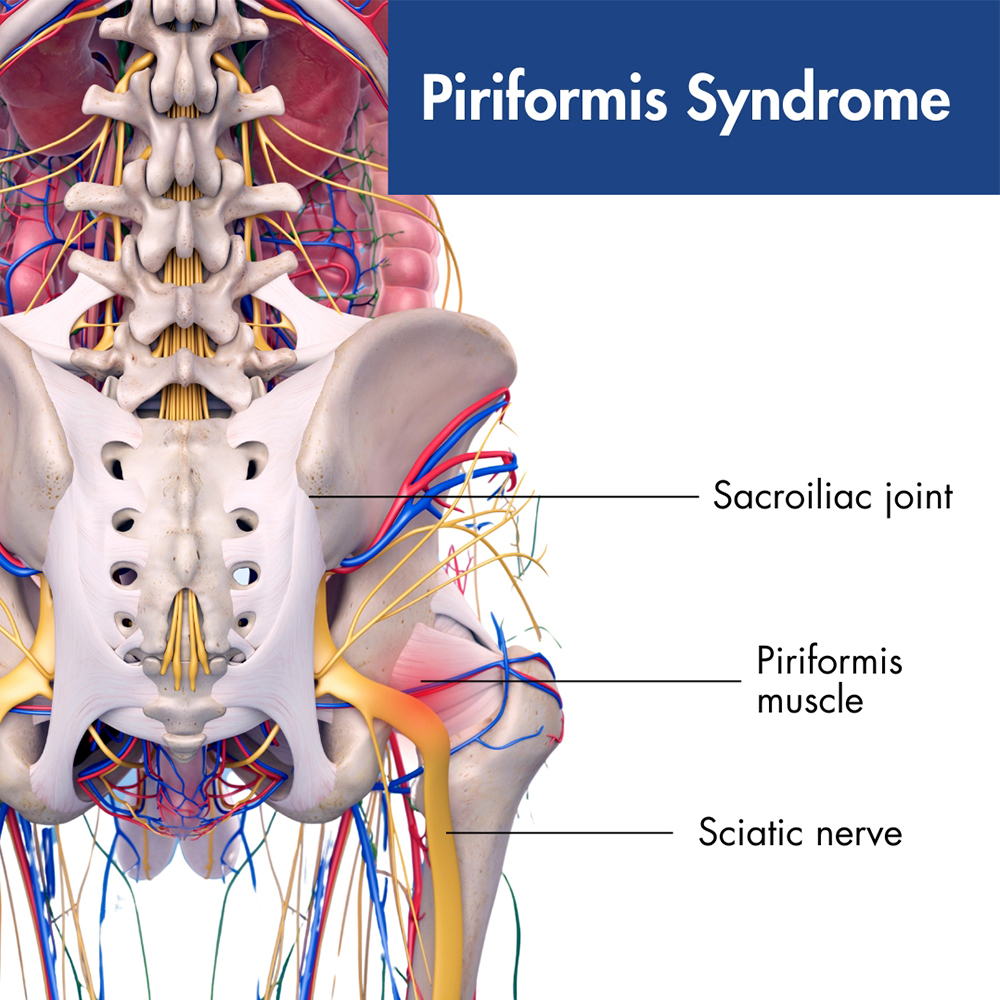We’re pleased to announce that Pain Physicians of Wisconsin is now Pro Spine Pain.
We’re pleased to announce that Pain Physicians of Wisconsin is now Pro Spine Pain.
 If your job demands prolonged periods of sitting—exceeding eight hours a day—you have a greater risk of experiencing piriformis syndrome. This condition affects the large muscles on both sides of your buttocks. The persistent pressure on the piriformis muscle can induce stress, resulting in discomfort extending from your rear end down to your legs and up to your lower back. While changing your occupation might not be feasible, there are preventive measures you can adopt to mitigate the risk of piriformis syndrome. Seeking guidance from the pain management specialists at Pro Spine & Pain will ensure comprehensive care, including advice on how to manage this condition. Book a consultation today to explore effective prevention strategies.
If your job demands prolonged periods of sitting—exceeding eight hours a day—you have a greater risk of experiencing piriformis syndrome. This condition affects the large muscles on both sides of your buttocks. The persistent pressure on the piriformis muscle can induce stress, resulting in discomfort extending from your rear end down to your legs and up to your lower back. While changing your occupation might not be feasible, there are preventive measures you can adopt to mitigate the risk of piriformis syndrome. Seeking guidance from the pain management specialists at Pro Spine & Pain will ensure comprehensive care, including advice on how to manage this condition. Book a consultation today to explore effective prevention strategies.
Piriformis syndrome develops slowly when the piriformis muscle, situated near the hip joint in the buttocks, compresses the sciatic nerve, extending from the lower back down the leg. This compression can arise from spasms or contractions in the piriformis muscles, or it may be triggered by injury and swelling of the piriformis muscle.
The syndrome typically develops gradually, often due to repetitive movements such as when you sit for long periods of time or engage in activities that involve continuous twisting, bending, or lifting of heavy loads. It can even arise from sitting or standing with poor posture. Factors like bone spurs, herniated discs, obesity, and diabetes can contribute to its onset, and traumatic events like car accidents or sports injuries may also be triggers.
If not properly managed, piriformis syndrome can be highly distressing, potentially disrupting your daily activities.
Recognizable symptoms include:
Given the similarities of these symptoms with other conditions, such as a pinched nerve or myofascial pain syndrome seeking the expertise of your expert pain management doctor at Pro Spine & Pain is crucial. A precise diagnosis is essential to tailor the most appropriate treatment for piriformis syndrome. Whether you are struggling with these symptoms or any degree of back pain, consider visiting one of our five Pro Spine & Pain locations in Wisconsin for compassionate, professional care.
Piriformis syndrome is sometimes known as “fat wallet” syndrome because it can be caused by individuals carrying a large, thick wallet in the back pocket of their trousers. When their wallet contains numerous cards, papers, bills, and/or coins and is carried in their back pocket—usually on their dominant side—while driving, riding, or sitting. The pressure of the wallet causes the compression of the sciatic nerve, coupled with piriformis muscle spasm.
To diagnose and address piriformis syndrome, your pain management specialist will conduct a comprehensive physical exam. This assessment involves various movements and stretches to identify your range of motion and precisely locate the problem. For this reason, it’s crucial for you to articulate your sensations clearly.
The treatment for piriformis syndrome typically commences with the least invasive measures, including:
Seek urgent medical attention if you experience abrupt and intense pain in your lower back or legs accompanied by muscle weakness or numbness. If you find it difficult to control your foot, leading to tripping while walking, or if you find that you are having problems controlling your bowels or bladder, it is crucial to seek prompt medical assistance.
The duration of healing for the piriformis muscle can vary based on the injury’s severity, with a complete recovery often taking up to six weeks. Many individuals experience reduced pain within one to three weeks of therapy, but consistent effort is required beyond this time in order to minimize the risk of relapse. If you’ve received physical therapy exercises, maintaining these routines at home is crucial.
The primary goal of your doctor is not only to alleviate pain but also to address the underlying causes, emphasizing the significance of preventing future occurrences for overall health and activity.
Strategies to prevent future piriformis muscle injuries include:
Prioritizing pain management enables you to lead your best life. If you’re grappling with piriformis muscle pain, reach out to your doctor at Pro Spine & Pain to arrange a consultation and initiate therapy.

Thomas Stauss, MD, completed both his undergraduate and medical studies at the esteemed University of Wisconsin in Madison. Dr. Stauss values having access to a wide array of cutting-edge treatment options, ensuring effective relief for his patients' discomfort and a significant enhancement in their quality of life. More specifically, he specializes in utilizing implanted devices to manage chronic pain. Dr. Stauss’s primary objective is to uphold the dignity of each patient while delivering ethical and professional services.
More about Dr. Stauss